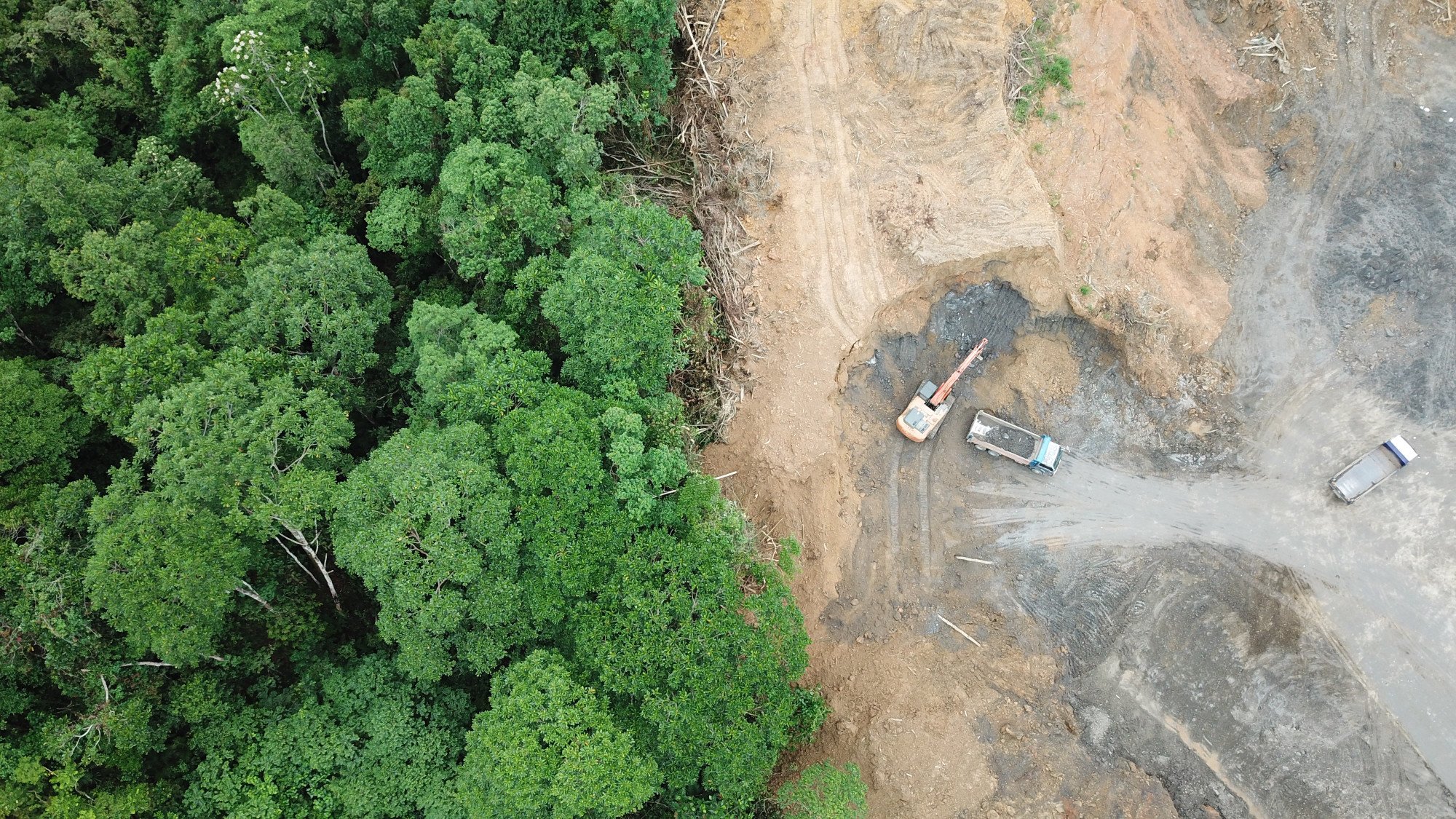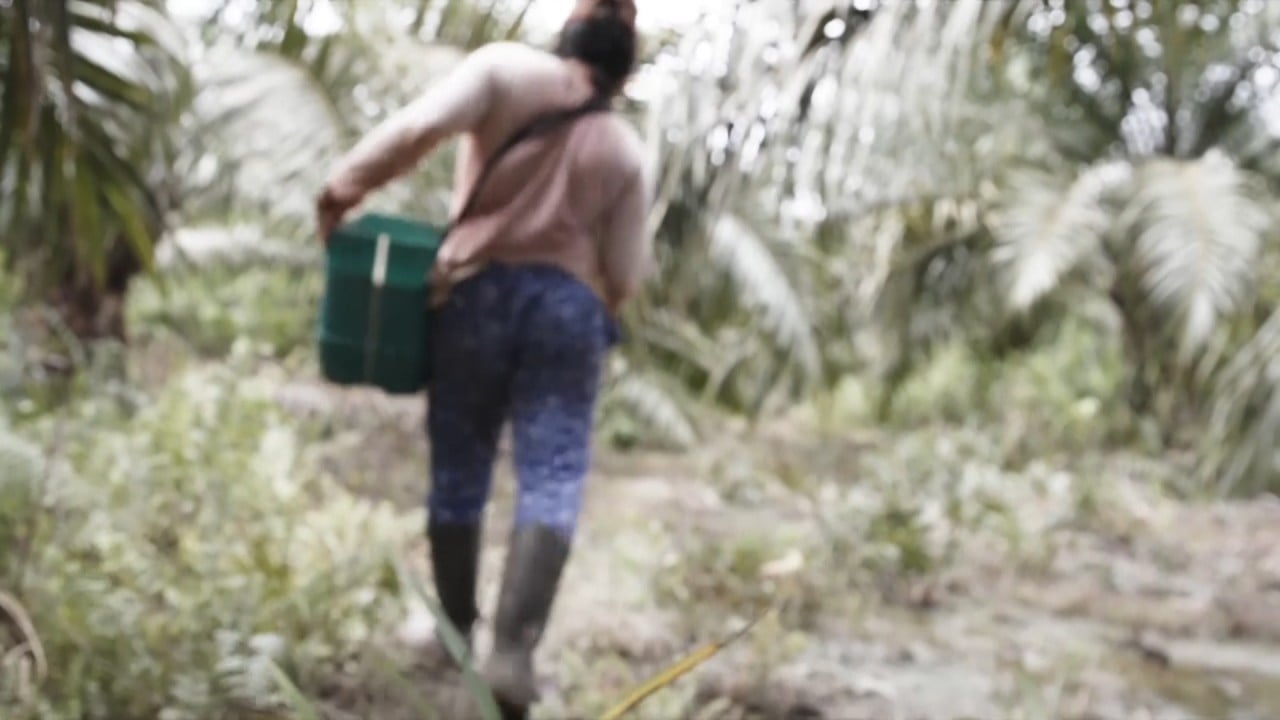
‘Orangutan diplomacy’: Malaysia plans to gift great apes to ease palm oil deforestation concerns
- The idea, floated by Commodities Minister Johari Abdul Ghani, would be a play on China’s panda diplomacy
- A new EU regulation requires palm oil suppliers to prove their products are not contributing to the deforestation that is destroying orangutan habitats
The idea, floated by Commodities Minister Johari Abdul Ghani, comes as a European Union (EU) deforestation regulation, which mandates that traders who sell palm oil to the EU prove their products have no links to deforestation, is set to come into effect.
“It is a diplomatic strategy, where we will gift [orangutans] to trading partners and foreign relations, especially in major importing countries such as the European Union, India and China,” Johari said while speaking at a forum on biodiversity at the Malaysian Palm Oil Green Conservation Foundation (MPOGCF) on Tuesday.
He added that Malaysia needs to show palm oil importing nations that it is a sustainable producer and is committed to protecting forests and environmental sustainability.
“Malaysia cannot take a defensive approach to the issue of palm oil.”

Malaysia’s 124,000 square kilometres of pristine rainforest – home to the critically endangered orangutan – have been hacked at by the voracious needs of palm oil and other industries. It is estimated that the country has lost nearly a fifth of its old-growth forest since 2001.
The palm oil industry, which produces a key ingredient in products ranging from lipsticks and shampoos to instant noodles and chocolates, has until the end of 2024 to comply with the new EU rules, which came into force in June 2023.
Malaysia’s palm oil sector is worth over US$7.5 billion, making it a crucial contributor to the country’s gross domestic product.
Crude palm oil has been trading at around 3,900 ringgit (US$822) per tonne for the last few years, down from a spike of over 6,000 ringgit in 2022.
The top two Malaysian palm oil producers are Sime Darby and FGV. The Malaysian government and its agencies hold substantial stakes in both companies.
Commenting on the new EU regulation in November, Prime Minister Anwar Ibrahim urged the union to recognise and appreciate the efforts of palm oil-producing countries in meeting its regulation, stressing that Malaysia and Indonesia have taken aggressive measures to comply.
“In the desire to continue with this reduction in carbon emissions, [the EU] need to take into consideration all the problems of the emerging economies,” Anwar said.
According to the International Union for Conservation of Nature (IUCN) Red List of Threatened Species, the three remaining species of orangutan are classified as ‘critically endangered’, two tiers above extinction, with just over 50,000 of the great apes left in the wild.
The conservation charity WWF says the orangutan population has plummeted over the last 40 years, from over 288,000 in 1973 to 104,000 in 2012. The population is expected to shrink to 47,000 by 2025 if deforestation continues.
Native to the rainforests of Indonesia and Malaysia, images of orangutans sitting on barren and recently cleared forests have become a visceral shorthand for the deforestation that is happening in both countries, which is largely attributed to land clearance operations for palm oil plantations.
The Orangutan Conservancy, a non-profit dedicated to the protection of the great ape, says that on average, 2,000 to 3,000 orangutans are killed each year due to habitat loss caused by deforestation and palm oil plantations, as well as illegal hunting and pet trade.

“This will be a manifestation of how Malaysia conserves wildlife species and maintains the sustainability of our forests, especially in the oil palm plantation landscape,” Johari said of his orangutan diplomacy proposal.
China’s panda diplomacy is a diplomatic practice in which Beijing lends the black and white bears to other nations as a symbol of friendship, goodwill, and diplomacy.
Malaysia received a pair of pandas, Xing Xing and Liang Liang, in 2014, which have since given birth to three cubs.


